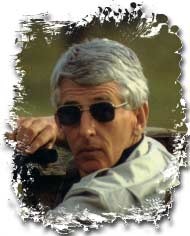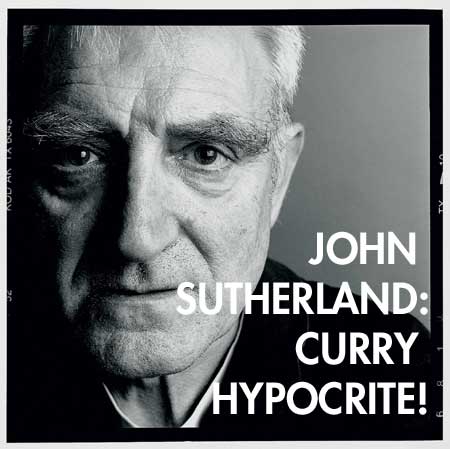Month / September 2008

Gregory McDonald Dead
 Giles News is reporting that Gregory McDonald, the tremendously talented author of the Fletch series has died. I am now making efforts to confirm this. If this is true, this is a tremendous loss to American letters.
Giles News is reporting that Gregory McDonald, the tremendously talented author of the Fletch series has died. I am now making efforts to confirm this. If this is true, this is a tremendous loss to American letters.
[UPDATE: I have confirmed by phone with Charlie of the Giles County Ambulance Service that Gregory McDonald passed away on Sunday. As soon as I have a chance to collect my thoughts and feelings, I plan to offer a full-length tribute here. I’m still in shock.]
I first encountered the Fletch books in the library when I was twelve. The ratty paperbacks were bound in taut cellophane. I didn’t understand why they hadn’t been released in hardcover. But as it turned out, there were complex reasons. I had, of course, known about the Chevy Chase movie. But Chase’s wisecracks (as conveyed through Andrew Bergman’s screenplay) weren’t even close to McDonald’s great barbs. The first Fletch book was driven almost entirely by dialogue, keeping up a momentum that sucked me into the text. The story goes that mystery purists were upset that McDonald published the Fletch books as paperback originals. They were also angered that McDonald had used sex and wit to draw readers into his novels. But McDonald wanted ordinary people to read them. McDonald’s Fletch books, however, were far from ordinary.
Here’s the first page from Fletch:
“What’s your name?”
“Fletch.”
“What’s your full name?”
“Fletcher.”
“What’s your first name?”
“Irwin.”
“What?”
“Irwin. Irwin Fletcher. People call me Fletch.”
“Irwin Fletcher, I have a proposition to make to you. I will give you a thousand dollars for just listening to it. If you decide to reject the proposition, you take the thousand dollars, go away, and never tell anyone we talked. Fair enough?”
“Is it criminal? I mean, what you want me to do?”
“Of course.”
“Fair enough. For a thousand bucks I can listen. What do you want me to do?”
“I want you to murder me.”
The black shoes tainted with sand came across the oriental rug. The man took an envelope from an inside pocket of his suit jacket and dropped it into Fletch’s lap. Inside were ten one-hundred-dollar bills.
Now what sane person wouldn’t want to continue reading this story? This opening is as gripping as the first page of James M. Cain’s The Postman Always Rings Twice often taught in literature classes, but it likewise carries a concern for precision reminiscent of Tom Stoppard’s Rosencrantz & Guildenstern Are Dead. McDonald stubbornly resists description until the very end. He lets his characters convey the specifics through dialogue. We learn that Fletch is a casual sort who can’t abide fussy types using proper names. We learn immediately that he’s sharp, that he’s not going to permit himself to get caught up in illegal activity without considering all the details. We learn that the mysterious interlocutor is more concerned with specifics rather than logistics.
And then there’s that magnificent amateur quality juxtaposed against this questioner’s wealth. The sandy shoes indicate that this mysterious questioner probably isn’t what you might call experienced. But he does have a lot of money.
McDonald was able to set this very careful relationship, along with its many nuances, in a mere 138 words. And he was able to do this almost entirely through dialogue. He was an extraordinary writer. And what made him so extraordinary was his ability to merge this concern for detail with a tremendous ear for dialogue, down to the comma, producing books that could be enjoyed and appreciated by both popular and literary audiences. (A telling indicator of his mass appeal is that filmmaker Kevin Smith learned to write dialogue by reading the Fletch books. Smith snatched up all the movie rights to the Fletch series many years ago, but movies have yet to appear.)
But because McDonald insisted that ordinary readers were capable of basic intelligence, because he insisted that his books should be priced affordably, he was not taken as seriously as he deserved by the old guard. Fletch, nevertheless, would go on to win an Edgar Award for Best Novel. And the book’s sequel, Confess, Fletch, would win for Best Paperback Original.
By all accounts, McDonald was a private person. But Vintage Crime reissued all of the Fletch books a few years ago. And the work will live on.
RELATED: Thankfully, Don Swaim talked with McDonald twice. From the 1987 interview:
MCDONALD: There is a very exciting thing going on in this country. And that is that there have begun to be small publishers in places like Boston, Atlanta, San Francisco, Los Angeles, wherever. And they are not doing what the big commercial houses are doing, of trying to publish the imitation of last year’s imitation of last year’s imitation. And I’m sorry that I can’t cite you chapter and verse. But I am finding that these small publishing houses are creating or letting be published for the first time in a long time in American history and American literature, and they are publishing very exciting stuff, very real stuff, very original stuff, and taking the risks that the big commercial houses wouldn’t do. And they are nurturing the work, and they are nurturing the writers in a way that the big commercial houses don’t do. And I don’t mind at all throwing my lot in with them.
[UPDATE: Mere hours after this post went up, The Rap Sheet’s Cameron Hughes offered his “tribute,” seeing fit to use the same excerpt, similar phrasings, and similar examples from this post. Gee, thanks a lot, assholes.]

Demand Curry Accountability from John Sutherland!

Despite John Sutherland’s previous pledge that he would curry and eat his proof copy of Salman Rushdie’s The Enchantress of Florence if the book did not win the Booker Prize, Mr. Sutherland revealed to the Guardian this morning that he would not fulfill his promise! He does say that he “might manage a custard pie on October 10.” But a custard pie isn’t good enough, Mr. Sutherland! A custard pie is not a curried proof copy! Not by a long shot!
This is curry hypocrisy of the first order!
The time has come to publicly scold Mr. Sutherland for failing to live up to the terms of the stunt. I therefore announce the John Sutherland Curry Hypocrite Photoshop Contest. Send in your graphical response to Sutherland’s curry flip-flopping, along with your URL and mailing address. I will post the entries over the next several weeks, as they come in. The winner of the contest will receive a copy of Salman Rushdie’s The Enchantress of Florence. The email address is ed@edrants.com.
Quick Roundup
- The schedule is somewhat crazy, but it should bear intriguing fruit in the next few weeks. In the meantime, here are a few quick links.
- Ben Downing remembers Thomas M. Disch. [UPDATE: And another tribute from David Yezzi. (via Books Inq.)]
- Howard Junker exposes an ethical contretemps involving The VQR Poetry Series and the University of Georgia Press. [UPDATE: Here’s some more investigation from Tim Brown.]
- Strunk & White revisited.
- Jeanette Winterston on how British booksellers can learn from the French. (via jafurtado)
- Mark Danielewski’s House of Pancakes. (via Jessa)
- John Scalzi on the Large Hadron Collider “destroy the universe” silliness. (via Jenny D)
- Hug your running mate, kiss your wife.
- James Franco as Ginsberg? (via Jeff)
- Bad enough that Olbermann and Matthews were fired as political co-anchors, but Joanne points out that Comcast is canceling MSNBC in multiple markets.
- Difficulties in judging the Booker. (via John Fox)
- Ortohofer lists the considerable Bolaño volumes up the pipeline.
- John Warner’s new strategy of promoting books. And guess what? It doesn’t involve newspapers.
- Is Francine Prose ODing on food metaphors?
- One of Robert Giroux’s last writings. (via Bookninja)
- VanderMeer gets a beer bath, among other fey photos. (via Enter the Octopus)
- Is Google primed to republish 244 years of newspaper articles? Can this compete with LEXIS/NEXIS and Factiva?
- And Noel Gallagher thought Canadians were nice.
- McCain campaign manager Rick Davis: “”She’s not scared to answer questions. But you know what? We run our campaign, not the news media. And we’ll do things on our timetable.” You know what? That sounds to me like a frightened candidate. (via Erin O’Brien)

Booker Shortlist Announced, John Sutherland Dinner Date In Works?
 This year’s Man Booker Prize shortlist has been announced, and Rushdie is not on it.
This year’s Man Booker Prize shortlist has been announced, and Rushdie is not on it.
What this means is that John Sutherland, who promised that he would curry and eat his proof copy of The Enchantress of Florence if Rushdie’s book did not win the Booker, is now under a certain gustatory obligation reminiscent of a certain German filmmaker.
If Sutherland does not eat his proof copy, then one can never take the man’s word seriously again. Never! Fair is fair, Sutherland. You promised to eat your proof copy. The time has come to live up to your pledge.
Here is the shortlist:
Aravind Adiga, The White Tiger
Sebastian Barry, The Secret Scripture
Amtiva Ghosh, Sea of Poppies
Linda Grant, The Clothes on Their Backs
Philip Hensher, The Northern Clemency
Steve Toltz, A Fraction of the Whole
[UPDATE: Sutherland won’t do it! He is not a man of his word. Tread carefully around Sutherland’s culinary duplicity! For shame!]